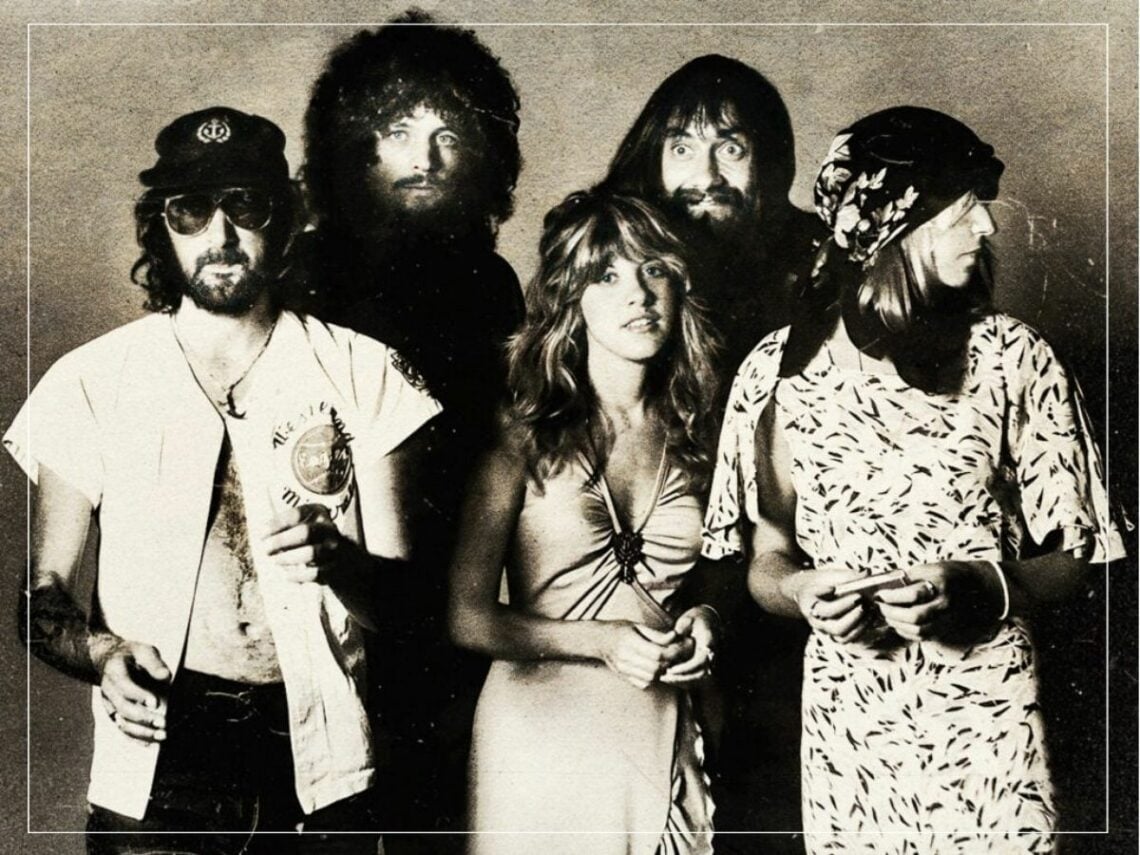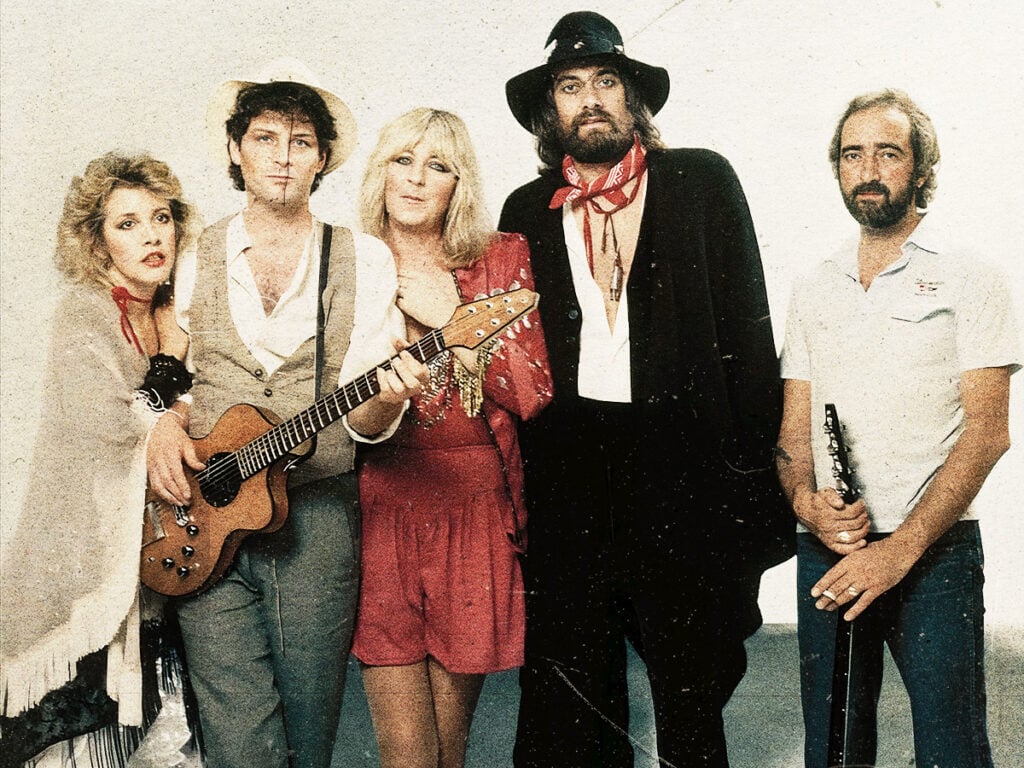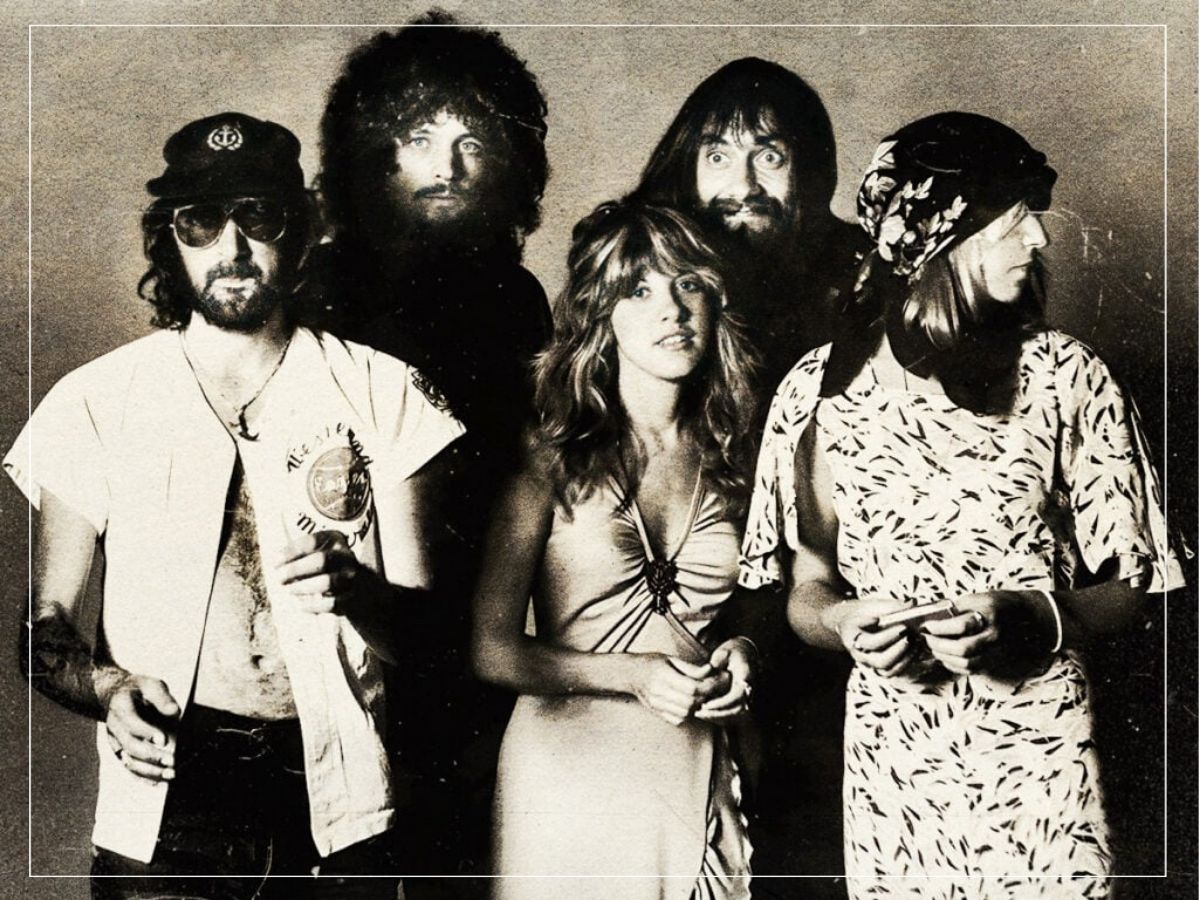
(Credits: Far Out / Alamy)
Wed 13 August 2025 4:00, UK
I know how that headline looks. I think we all do. If we have a passing knowledge of Fleetwood Mac, then we know that the idea that they “saved themselves from catastrophe” is an idea that should be taken with several shovelfuls of salt.
It wasn’t that Fleetwood Mac were a dysfunctional band, you understand, that would be an oversimplification. It’s more than over the course of their storied career, they were at least three dysfunctional bands, and said dysfunction only got worse when the band got more successful.
This is saying a lot because the band’s world-conquering success from the late 1970s onwards absolutely did not cause the dysfunction. It was woven into the very fabric of the band when they formed as Peter Green’s Fleetwood Mac in 1967. After a fairly rocky run of middling success, amazing music and inter-band tension (best get fucking used to that last one, lads) in the late 1960s, the first major breakdown came in 1970 when Green, the band’s lead singer, songwriter, guitarist and all-around leader, left the group in a huff. Bollocks.
Green’s ego and drug habit had gotten so out of control that he wanted the band to give all their money to charity. This was, of course, while he was desperately hoping that Senpais Jagger and Richards would notice him now that a spot in the Rolling Stones had opened up due to Mick Taylor’s departure. Wonder if all the lucre from that would have gone to a good cause, too? Fortunately, the band replaced him with bassist John McVie’s wife, Christine and guitarist Bob Weston in 1972. Weston lasted a year before having an affair with Mick Fleetwood’s wife, Jenny.
The band actually split up briefly after that, leading to a brief, strange period where two rival Fleetwood Macs existed. The original Mac prevailed, and after the McVies and Mick Fleetwood hired mercurially talented California songwriters Stevie Nicks and Lindsay Buckingham to front the group, the band began producing some of the best work of their entire career. Stardom followed with their 1975 self-titled album and 1977’s Rumours being two of the most commercially successful rock albums of all time. Was this the end of their rocky trail? Good times forever from here on out? Erm. No.
 (Credits: Far Out / IMDB)Who saved Fleetwood Mac from catastrophe?
(Credits: Far Out / IMDB)Who saved Fleetwood Mac from catastrophe?
As famous as any song written in that period is the sheer, apocalyptic amount of drama that permeated, and in some cases inspired it. Buckingham and Nicks were an infamously volatile couple. The McVies weren’t much better. John was shagging anything that moved before Christine got him with one of the most satisfying one-two punches in rock. Shacking up with the band’s lighting designer, Curry Grant, and then writing a song about her new squeeze, on which her current husband played bass, called ‘You Make Loving Fun’.
Needless to say, all of this was conducted while consuming enough cocaine to keep the entire Colombian economy running for years. Despite all the behind-the-scenes drama, everything seemed hunky-dory on the surface. Fleetwood Mac were the biggest band in the world, and what’s more, they actually had the same line-up for longer than a year for the first time in their entire history as a band. They stayed together for over a decade until those tensions finally got the better of them in 1987. You see, despite all the glamorous, drug-fuelled romantic tension, what kneecapped the Mac was actually a struggle for creative control.
Buckingham, in particular, saw himself as the band leader who wanted full creative control of the group. In fairness to the lad (and it truly hurts to have to be fair to Lindsey Buckinham), he had a point. The 1980s were the time when the band’s herculean intake of drink and drugs finally started to slow the band down, with Fleetwood and Nicks in particular barely functioning. Buckingham resented having to singlehandedly carry the band while also being (in his mind) pilloried as a control freak for doing so. He finally slung his hook, and the band was left without their central creative force.
However, if you learn two things from a glance at Fleetwood Mac’s history, it’s that these are a band of survivors. Mick Fleetwood sprang into action. Hiring Billy Burnette from his side project The Zoo on rhythm guitar and Bob Seger sideman Rick Vito on lead guitar to replace the departing Buckingham. While the resulting period of Mac’s history isn’t exactly stellar, Fleetwood has always been grateful to Burnette and Vito for stepping in when they did. Telling Pioneer Press “they turned what could have been a catastrophic event into a smooth transition.”
Only someone who’d spent the past 30 years playing in Fleetwood Mac could call a situation like that “a smooth transition”, but that’s part of why we love them, I guess. Along with all the great music, they’re a sign that no matter how bad and chaotic things get, you can always move forward and find yourself again.
Related Topics
